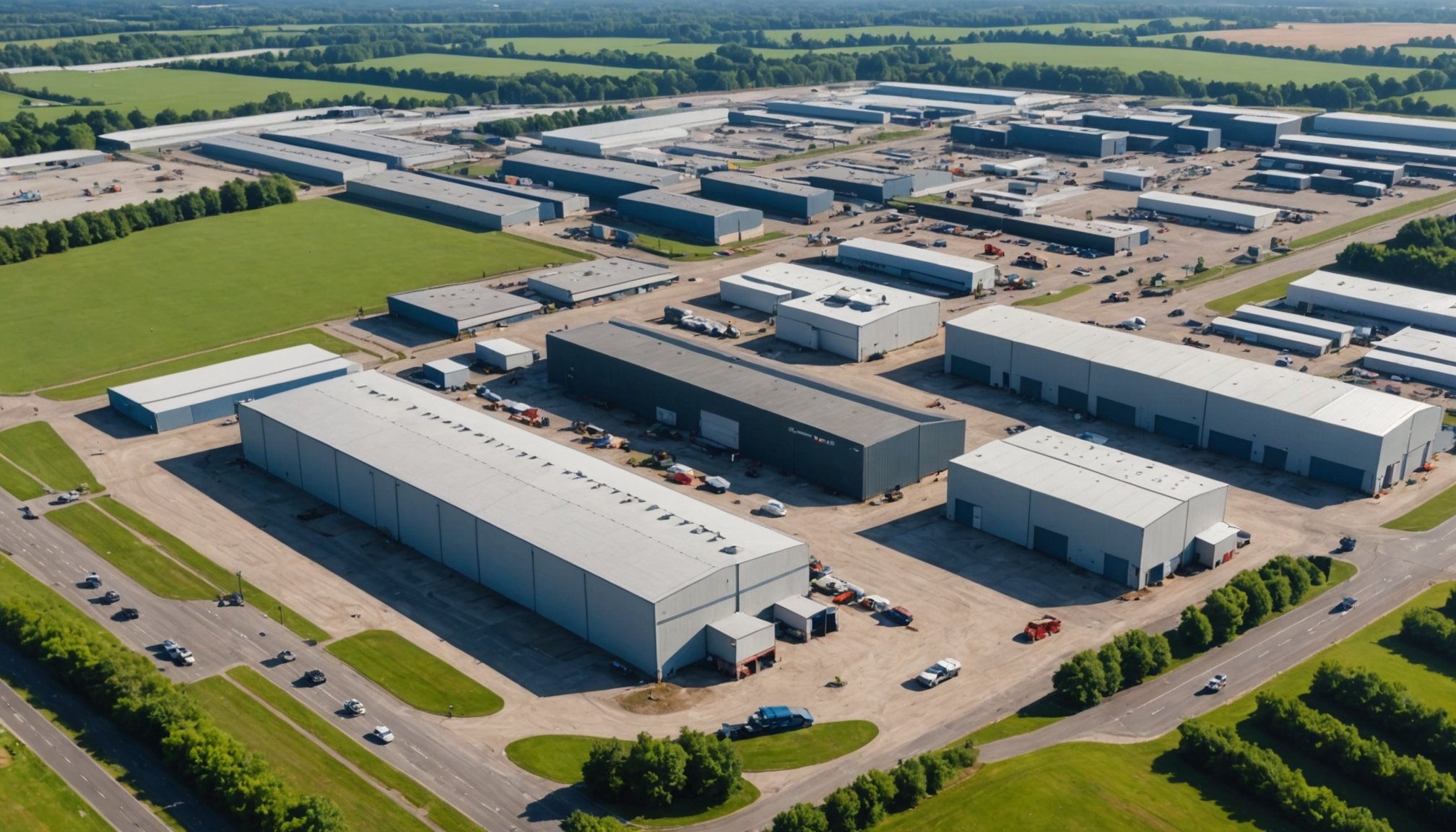Understanding Insurance Costs in Birmingham’s Industrial Zones
In Birmingham’s industrial zones, several unique cost factors influence insurance premiums. Due to the dense concentration of businesses and manufacturing operations, these areas often present elevated risks. Common risks faced by properties include increased exposure to machinery accidents, chemical spills, and fires, which significantly impact insurance costs.
Another crucial element affecting premiums is the local regulations and policies in place. Birmingham’s industrial zones may impose specific safety standards and compliance requirements to mitigate these risks, indirectly affecting the cost of insurance.
Sujet a lire : Smart Home Insurance in Cambridge: Your Guide to Finding the Perfect Coverage for Tech-Enabled Living
Understanding these local regulations is crucial for businesses aiming to manage and potentially reduce costs. Companies can work with insurers to tailor policies that reflect compliance with such standards, leading to more favourable premiums.
Additionally, industrial properties may face challenges such as theft, vandalism, and natural disasters that further influence insurance costs. A comprehensive understanding of these factors allows businesses to strategically address risks and ensures they are adequately covered. By assessing their unique risk profile, organisations can make informed decisions and possibly negotiate better insurance terms.
A voir aussi : Navigating Homeowners Insurance for Eco-Conscious Properties in Cornwall: A Comprehensive Guide
Essential Strategies for Lowering Insurance Costs
Optimising your insurance savings can significantly reduce expenses for industrial properties. Below are essential strategies to consider.
Conducting Comprehensive Risk Assessments
Understanding and managing risk is crucial. A thorough risk assessment will identify potential hazards specific to your industrial operation. This involves evaluating equipment reliability, safety protocols, and environmental risks. Implementing proactive risk management measures, such as regular maintenance checks and updating safety procedures, can diminish potential threats, thereby lowering insurance costs. Use technologies and tools, like risk assessment software, to enhance accuracy and efficiency in evaluating these risks.
Diversifying Insurance Policies
Exploring different insurance options is vital. Various insurance policies are available for industrial properties, such as property, liability, and business interruption insurance. Bundling these policies might offer substantial cost reductions. Assessing your property’s unique needs will guide you in selecting the appropriate coverage. Key considerations include evaluating potential savings and ensuring the policies align with your risk management plan.
Negotiating with Insurance Providers
Effective negotiation can substantially cut expenses. Start by gathering quotes from diverse providers to contrast premium rates. Building a relationship with an insurance broker can leverage their expertise to obtain better deals and tailor policies for your needs. Engage in open discussions about your risk management practices to advocate for reduced premiums.
Insights from Case Studies in Birmingham
Exploring local case studies in Birmingham reveals valuable insights into property insurance strategies and cost reduction techniques. Real-world examples illustrate how Birmingham property owners have successfully navigated the complexities of insurance. For instance, a property management company tackled rising premiums by implementing a comprehensive risk assessment. This approach not only identified potential hazards but also provided a roadmap for ensuring safety, thereby reducing claims and lowering insurance costs.
Another case in Birmingham involved a commercial building complex that optimised its insurance coverage. By tailoring policies to address specific risks identified in the area, they achieved a significant reduction in overall expenditure. These practical examples underscore the importance of aligning insurance strategies with local environmental and economic conditions.
Different sectors within Birmingham’s industrial landscape offer varied lessons. A manufacturing unit, for example, leveraged predictive analytics to anticipate maintenance needs, reducing unexpected breakdowns and associated insurance claims. This strategic foresight resulted in a more favourable insurance premium.
These insights highlight the diverse approaches property owners can adopt. Analysing these local case studies not only demonstrates successful cost-saving measures but also emphasises the potential benefits of customising insurance policies to reflect unique business risks within Birmingham.
Local Regulations Impacting Insurance Costs
In Birmingham, understanding local regulations is crucial for managing insurance costs. The area’s property law and insurance compliance requirements are key factors offering both challenges and opportunities for property owners.
Overview of Relevant Local Regulations
Key local laws in Birmingham significantly impact insurance rates, especially for industrial properties. Regulatory changes can directly influence how premiums are calculated. For instance, amendments in zoning laws or safety regulations often require insurance compliance adjustments. Non-compliance can lead to penalties and higher premiums, making it essential to stay updated on these property law changes.
Adapting to Regulatory Changes
Adapting to regulatory changes involves several proactive strategies. Keeping informed about new regulations is the first step. This can be achieved by subscribing to local governmental bulletins or joining industry associations. Additionally, adjusting insurance strategies in response is crucial. Insurance policies should be reviewed and updated regularly to reflect current local regulations. Collaborating with local authorities provides a deeper understanding of how new policies might affect property owners. This collaboration can also offer insights into potential future developments in property law, helping owners stay ahead in compliance and cost management.
Expert Opinions and Recommendations
Consulting with insurance experts can significantly benefit businesses looking to manage and reduce costs. Professional insights, specifically from those familiar with Birmingham, provide tailored strategies. Experts in Birmingham risk management suggest companies closely evaluate their policies to avoid unnecessary expenses. One approach is to conduct regular reviews of coverage to align with current business needs, which can potentially lower premiums.
Professional insights highlight the necessity of personalising insurance solutions. By engaging a specialist, businesses can identify specific risks and ensure they are adequately covered. This focus on tailored policies helps in avoiding generic, one-size-fits-all plans that might not serve specific needs, ultimately saving money.
Future trends are expected to play a pivotal role in shaping insurance costs in Birmingham’s industrial zones. With evolving digital risks and regulatory changes, staying informed is crucial for strategic planning. Insurance experts recommend proactive adjustments in policies to anticipate these shifts, ensuring businesses remain resilient and cost-effective.
Birmingham risk management specialists insist on a forward-thinking approach, combining technological advancements with human expertise. This synergy is key in navigating the complexities of the insurance landscape, offering peace of mind and financial stability. In today’s dynamic environment, expert consultation is not just beneficial—it’s essential.











